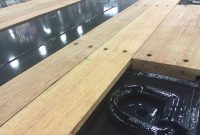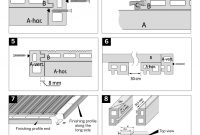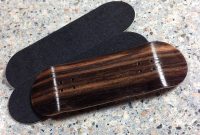Wood Deck Table
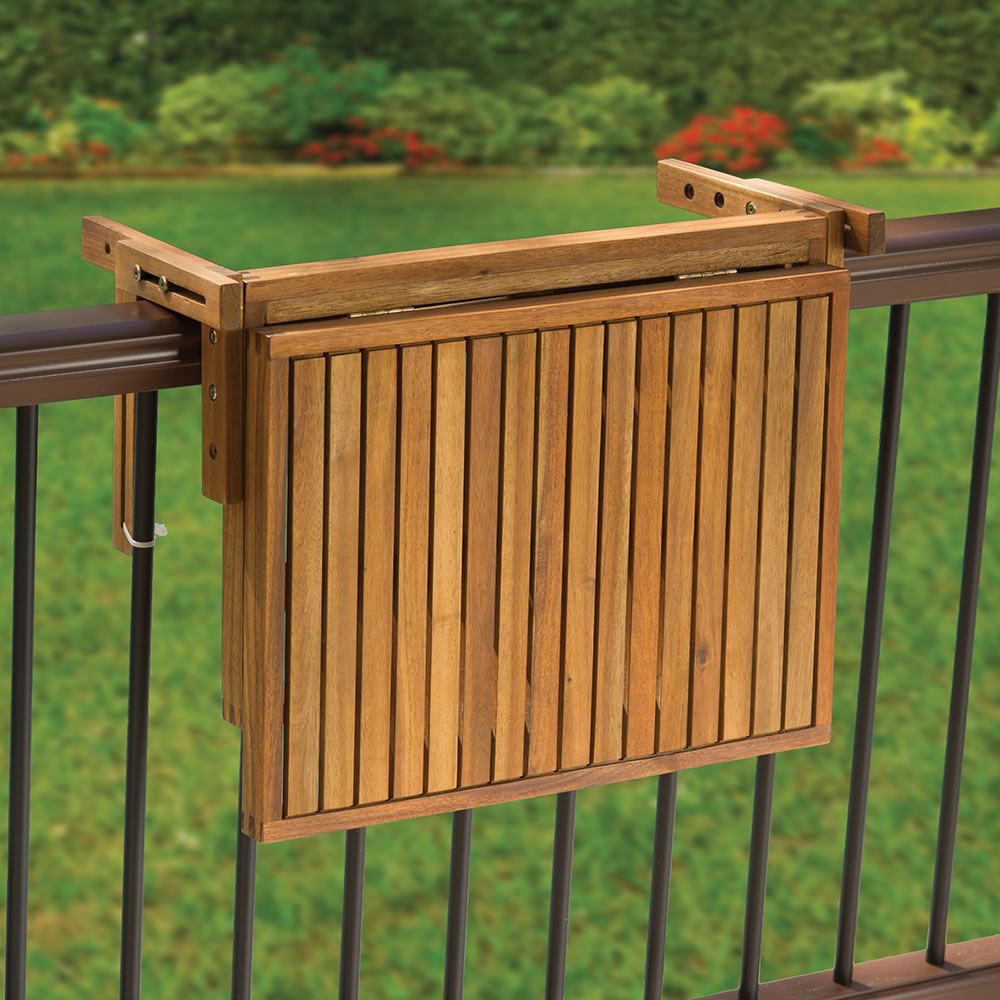 The Instant Wooden Deck Table Hammacher Schlemmer regarding dimensions 1000 X 1000
The Instant Wooden Deck Table Hammacher Schlemmer regarding dimensions 1000 X 1000Wood Deck Table – Part of the technique of building a deck is deciding which materials to use for the decking. Basically, you have two choices – wood or composite. In this article, I’ll share the pros and cons of each one type that will help you choose the best one for the deck. The main difference between wood and composite decking is the quantity of maintenance required. Wood decking requires more upkeep than composite, but looks nicer. The companies who manufacture composite decking are performing their best to generate their product appear to be real wood, but up to now haven’t achieved it. I personally don’t even think they’ll ever be capable of match the advantage of real wood. Because of the extra time needed to maintain wood decking, you need must yourself if you have the extra time needed to keep a wood deck sealed and seeking good. If you DO have time and so are happy to spend it on your deck, great! Go with wood.
If, however, you don’t have extra time or don’t want to commit to sealing a wood deck maybe once or twice a year, composite may be a good choice. Even though wood decks require more upkeep, there exists a kind of wood you can use for decking which requires almost no or no upkeep. That wood is cedar. I’ve actually laid wood decking and done absolutely NOTHING to it along it last for years without having problems. Cedar is naturally resistance against rain, snow, and sunlight. It doesn’t warp or twist, and still have almost no tendency to check on or cup.
The only drawback with cedar decking left unsealed is the fact that is will turn gray with time. If you are instead of this look, it is possible to choose to seal it maybe once or twice annually. It may still “gray”, but it will take longer to do this. Actually ALL wood decks will turn gray with time, until you apply sealer every several months, the industry great deal of work. Composite decking, conversely, is virtually maintenance free. Once it’s laid down, it will not change much even through extreme weather. Some composite deck colors will fade over a long period, but the fading is uniform, so that you won’t really notice it happening.
There are some disadvantages to presenting composite. First, composite decking is more expensive than wood. This might be an issue if you have financial restrictions. If you take into account the cost savings of not buying sealer for a long time, it will normalize the cost increase somewhat. Another disadvantage of using composite decking is the potential for the product failing. Just like any man-made product, composite decking might be faulty. A few years ago, one major composite decking manufacturer released some defective material. This resulted in many decks going bad which created a class action lawsuit. Even with compensation presented to consumers, many were bound to high replacement costs. This doesn’t mean every composite deck strategy is going to have problems, it’s only a reminder that it COULD happen.
Overall, wood or composite decks are good. You just need to decide from the gray deck, a wood deck that will require maintenance, or perhaps a composite deck which requires no upkeep, but is more expensive and has the opportunity to travel awry.
You may also like
-
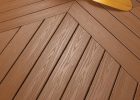 Wood Deck DeicerWood Deck Deicer Decks Ideas intended for proportions 1026 X 1033 Wood Deck Deicer – Part of the procedure for constructing a deck is deciding which
Wood Deck DeicerWood Deck Deicer Decks Ideas intended for proportions 1026 X 1033 Wood Deck Deicer – Part of the procedure for constructing a deck is deciding which -
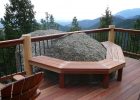 Custom Wood DeckGenesis Group Llc Wood Decks Vs Composite Decks Genesis Group Llc regarding proportions 1024 X 768 Custom Wood Deck – Are you experiencing difficulty deciding on
Custom Wood DeckGenesis Group Llc Wood Decks Vs Composite Decks Genesis Group Llc regarding proportions 1024 X 768 Custom Wood Deck – Are you experiencing difficulty deciding on -
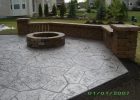 Concrete Vs Wood DeckLike The Design And Size Backyard Deck Patio Concrete Patio in size 1024 X 768 Concrete Vs Wood Deck – Part of the process of developing
Concrete Vs Wood DeckLike The Design And Size Backyard Deck Patio Concrete Patio in size 1024 X 768 Concrete Vs Wood Deck – Part of the process of developing -
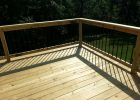 Natural Wood DeckingWood Deck St Louis Wood Decking Pressure Treated Decking St Louis throughout measurements 1200 X 900 Natural Wood Decking – There are a lot of individuals
Natural Wood DeckingWood Deck St Louis Wood Decking Pressure Treated Decking St Louis throughout measurements 1200 X 900 Natural Wood Decking – There are a lot of individuals
